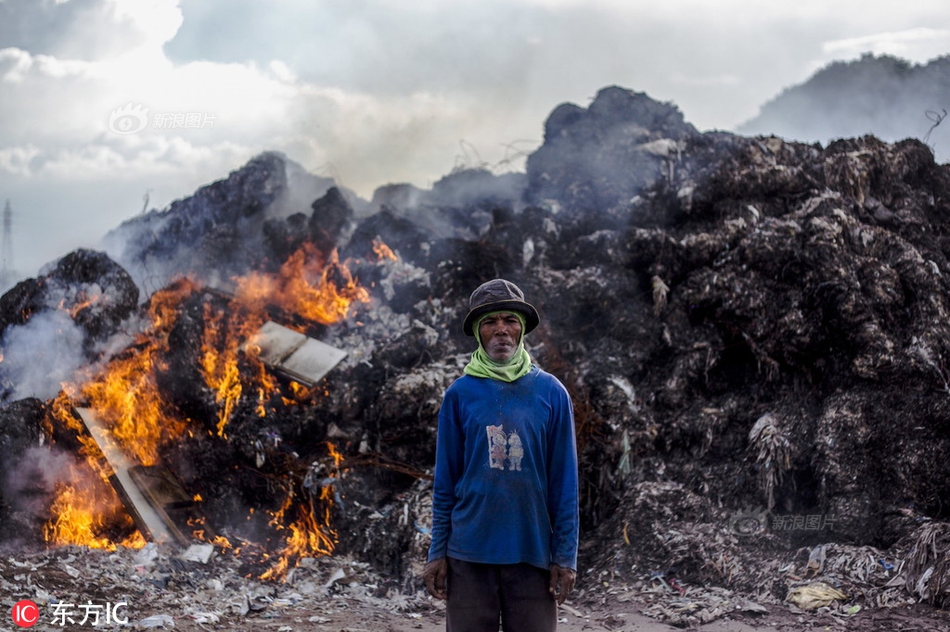lottery background
2025-01-05
lottery background
。
In June of 2020, a renewable energy company owned by Indian billionaire Gautam Adani won what it called the single largest solar development bid ever awarded: an agreement to supply 8 gigawatts of electricity to a state-owned power company. But there was a problem. Local power companies did not want to pay the prices the state company was offering, jeopardizing the deal, according to US authorities. To save the deal, Adani allegedly decided to bribe local officials to persuade them to buy the electricity. That allegation is at the heart of US criminal and civil charges unsealed on Wednesday against Adani, who is not currently in US custody and is believed to be in India. His company, Adani Group, said the charges were “baseless” and that it would seek “all possible legal recourse.” The alleged hundreds of millions of dollars in bribes promised to local Indian officials caught the attention of the US Justice Department and Securities and Exchange Commission as Adani’s companies were raising funds from US-based investors in several transactions starting in 2021. This account of how the alleged scheme unfolded is drawn from federal prosecutors’ 54-page criminal indictment of Adani and seven of his associates and two parallel civil SEC complaints, which extensively cite electronic messages between the scheme’s alleged participants. In early 2020, the Solar Energy Corporation of India awarded Adani Green Energy and another company, Azure Power Global, contracts for a 12-gigawatt solar energy project, expected to yield billions of dollars in revenue for both companies, according to the indictment. It was a major step forward for Adani Green Energy, run by Adani’s nephew, Sagar Adani. Up until that point, the company had only earned roughly $50 million in its history and had yet to turn a profit, according to the SEC complaint. But the initiative soon hit roadblocks. Local state electricity distributors were reluctant to commit to buying the new solar power, expecting prices to fall in the future, according to an April 7, 2021 report by the Institute for Energy Economics and Financial Analysis, a think tank. Sagar Adani and the Azure CEO at the time discussed the delays and hinted at bribes on the encrypted messaging application WhatsApp, according to the SEC. When the Azure CEO wrote on Nov. 24, 2020, that the local power companies “are being motivated,” Sagar Adani allegedly replied, “Yup ... but the optics are very difficult to cover. In February 2021, Sagar Adani allegedly wrote to the CEO, “Just so you know, we have doubled the incentives to push for these acceptances.” The SEC did not name the Azure CEO as a defendant, but Azure’s securities filings show the CEO at the time was Ranjit Gupta. Gupta was charged by the Justice Department with conspiracy to violate an anti-bribery law. He did not immediately respond to a request for comment. Azure said on Thursday it was cooperating with the US investigations, and that the individuals involved with the accusations had left the company more than a year ago. ‘Sudden good fortune’: In August of 2021, Gautam Adani had the first of several meetings with an official in the southern state of Andhra Pradesh, to whom he allegedly ultimately promised $228 million in bribes in exchange for agreeing to have the state buy the power, according to the Justice Department’s indictment. By December, Andhra Pradesh had agreed to buy the power, and other states with smaller contracts soon followed. Other states’ officials were promised bribes as well, US authorities said. During a Dec. 6, 2021 meeting at a coffee shop, Azure executives allegedly discussed “rumors that the Adanis had somehow facilitated signing” of the deals, according to the SEC. Gautam Adani said on Dec. 14, 2021, the company was on track “to become the world’s largest renewables player by 2030.” “The sudden good fortune for Azure and Adani Green prompted speculation in the marketplace about the contract awards,” the SEC wrote in its complaint. Letter from the sec: Before long, the SEC began to probe. The agency sent a “general inquiry” letter to Azure – which at the time traded on the New York Stock Exchange – on March 17, 2022, asking about its recent contracts and if foreign officials had sought anything of value, according to the Justice Department indictment. According to the Department of Justice, Gautam Adani told representatives of Azure during a meeting in his Ahmedabad, India office the next month that he expected to be reimbursed more than $80 million for the bribes he had paid officials that ultimately benefited Azure’s contracts.
BY MELISSA GOLDIN Social media users are misrepresenting a Vermont Supreme Court ruling , claiming that it gives schools permission to vaccinate children even if their parents do not consent. The ruling addressed a lawsuit filed by Dario and Shujen Politella against Windham Southeast School District and state officials over the mistaken vaccination of their child against COVID-19 in 2021, when he was 6 years old. A lower court had dismissed the original complaint, as well as an amended version. An appeal to the U.S. Supreme Court was filed on Nov. 19. But the ruling by Vermont’s high court is not as far-reaching as some online have claimed. In reality, it concluded that anyone protected under the Public Readiness and Emergency Preparedness Act, or PREP, Act is immune to state lawsuits. Here’s a closer look at the facts. CLAIM: The Vermont Supreme Court ruled that schools can vaccinate children against their parents’ wishes. THE FACTS: The claim stems from a July 26 ruling by the Vermont Supreme Court, which found that anyone protected by the PREP Act is immune to state lawsuits, including the officials named in the Politella’s suit. The ruling does not authorize schools to vaccinate children at their discretion. According to the lawsuit, the Politella’s son — referred to as L.P. — was given one dose of the Pfizer BioNTech COVID-19 vaccine at a vaccination clinic held at Academy School in Brattleboro even though his father, Dario, told the school’s assistant principal a few days before that his son was not to receive a vaccination. In what officials described as a mistake, L.P. was removed from class and had a “handwritten label” put on his shirt with the name and date of birth of another student, L.K., who had already been vaccinated that day. L.P. was then vaccinated. Ultimately, the Vermont Supreme Court ruled that officials involved in the case could not be sued. “We conclude that the PREP Act immunizes every defendant in this case and this fact alone is enough to dismiss the case,” the Vermont Supreme Court’s ruling reads. “We conclude that when the federal PREP Act immunizes a defendant, the PREP Act bars all state-law claims against that defendant as a matter of law.” The PREP Act , enacted by Congress in 2005, authorizes the secretary of the Department of Health and Human Services to issue a declaration in the event of a public health emergency providing immunity from liability for activities related to medical countermeasures, such as the administration of a vaccine, except in cases of “willful misconduct” that result in “death or serious physical injury.” A declaration against COVID-19 was issued on March 17, 2020. It is set to expire on Dec. 31. Federals suits claiming willful misconduct are filed in Washington. Social media users described the Vermont Supreme Court’s ruling as having consequences beyond what it actually says. “The Vermont Supreme Court has ruled that schools can force-vaccinate children for Covid against the wishes of their parents,” reads one X post that had been liked and shared approximately 16,600 times as of Tuesday. “The high court ruled on a case involving a 6-year-old boy who was forced to take a Covid mRNA injection by his school. However, his family had explicitly stated that they didn’t want their child to receive the ‘vaccines.’” Other users alleged that the ruling gives schools permission to give students any vaccine without parental consent, not just ones for COVID-19. Rod Smolla, president of the Vermont Law and Graduate School and an expert on constitutional law, told The Associated Press that the ruling “merely holds that the federal statute at issue, the PREP Act, preempts state lawsuits in cases in which officials mistakenly administer a vaccination without consent.” “Nothing in the Vermont Supreme Court opinion states that school officials can vaccinate a child against the instructions of the parent,” he wrote in an email. Asked whether the claims spreading online have any merit, Ronald Ferrara, an attorney representing the Politellas, told the AP that although the ruling doesn’t say schools can vaccinate students regardless of parental consent, officials could interpret it to mean that they could get away with doing so under the PREP Act, at least when it comes to COVID-19 vaccines. He explained that the U.S. Supreme Court appeal seeks to clarify whether the Vermont Supreme Court interpreted the PREP Act beyond what Congress intended. “The Politella’s fundamental liberty interest to decide whether their son should receive elective medical treatment was denied by agents of the State and School,” he wrote in an email to the AP. “The Vermont Court misconstrues the scope of PREP Act immunity (which is conditioned upon informed consent for medical treatments unapproved by FDA), to cover this denial of rights and its underlying battery.” Ferrara added that he was not aware of the claims spreading online, but that he “can understand how lay people may conflate the court’s mistaken grant of immunity for misconduct as tantamount to blessing such misconduct.”A martial law order from South Korean President Yoon Suk Yeol has again put communist influence in the country under the spotlight. For the first time in nearly four decades, the South Korean leader invoked the authority, accusing the opposing Democratic Party of aligning with communist North Korea. He revoked martial law hours later after parliament voted to lift the order. “I declare martial law to protect the free Republic of Korea from the threat of North Korean communist forces, to eradicate the despicable pro-North Korean anti-state forces that are plundering the freedom and happiness of our people, and to protect the free constitutional order,” Yoon said in a late-night address on Dec. 3. He said the political opposition, which dominates the national assembly, was “paralyzing the judiciary by intimidating judges and impeaching a large number of prosecutors,” and causing dysfunction in other government sectors as well. North Korea is far from the only country bringing communist influence over the peninsula. During a campaign rally in March, Lee criticized Yoon’s approach to China and his comments on the regime’s military encroachment on Taiwan, which the Chinese regime has sought to claim as its own. “Why are you provoking China?” Lee said. “What does the Taiwan issue have to do with South Korea?” The former presidential candidate Lee was convicted two weeks ago of violating election law and was sentenced to a one-year suspended prison term. Lee lost the 2022 election to Yoon by a 1 percent margin, marking the closest election in South Korean presidential history. The concern may be a pressing one if Yoon’s popularity plummets as a result of his emergency declaration. His own political party has disavowed the marital law order and said they would “stop it with the people.” “Yoon’s political days are likely numbered since the populace will be united in its criticism and the majority opposition party will seek Yoon’s impeachment,” Bruce Klingner, a veteran at the Central Intelligence Agency and the Defense Intelligence Agency who specializes in Korean affairs, told The Epoch Times. During the brief martial law declaration, Lee called for people in South Korea to descend on the national assembly to protest the order. “Economy, culture, universities, there is no place that hasn’t been penetrated,” a former counter-espionage official, who asked for anonymity, previously told The Epoch Times. Cities in the two countries have signed nearly 700 hundred friendship or sisterhood agreements. Hundreds of Chinese civil servants had been sent to work and train in South Korea through a state-sponsored civil servant exchange program. The Chinese embassy pays for South Korean youths to spend a week in China; it hands them books of Chinese leader Xi Jinping’s speeches to read before they depart and expresses hope that they'll be leaders of future bilateral relations. A mayor for the South Korean city of Gwangju in 2023 tried to build a park to honor the composer of the anthem of the People’s Liberation Army and a marching song for North Korea in order to attract tourists from China. The subversion by the Chinese Communist Party in Korea is not as well known compared to the threats from North Korea, but “it is extensive, and it is rather deep,” Tara O, author of The Collapse of North Korea, previously told The Epoch Times’ sister media NTD. She said the effort to build the park was “very ironic.” “That is just one of cultural warfare by China,” she said. Dozens of South Korean media outlets carry articles by the Chinese regime’s propaganda mouthpiece People’s Daily. South Korea also has the highest number of Confucius Institutes, a Chinese state-funded language education program to promote Beijing’s agenda. In a previous interview with The Epoch Times, Choi Soo Yong, a retired case officer from the National Intelligence Service, noted that there’s a room dedicated to the collections of works about Xi at the Seoul National University. By contrast, the university has no memorial to South Korea’s forefathers.
Israel, Lebanon agree to ceasefireThe incoming Republican administration of Donald Trump has threatened to impose a 25 per cent tariff on all products from Canada and Mexico on the first day of his presidency — Jan. 20, 2025. Canada says it will continue to work with the United States on trade issues while Mexico has hinted at retaliation . The tariffs would be devastating to both the Canadian and Mexican economies, which depend heavily on trade with the U.S. for their economic well-being. The two targeted governments would in fact be forced to respond with retaliatory tariffs targeting American goods, creating economic carnage in all three countries. Would these tariffs be legal? “Are these tariffs legal?” is a natural question to ask. Simply put, no. In a typically hyperbolic, randomly capitalized post on his Truth Social platform, Trump writes that he will impose “a 25% Tariff on ALL products coming into the United States, and its ridiculous Open Borders. This Tariff will remain in effect until such time as Drugs, in particular Fentanyl, and all Illegal Aliens stop this Invasion of our Country!” The North American Free Trade Agreement (NAFTA) replacement that Canada, Mexico and the United States negotiated — under American duress six years ago — contains a clause stipulating that the deal doesn’t stop any of the three countries “from applying measures that it considers necessary for ... the protection of its own essential security interests.” But any attempt to invoke that clause would be so obviously a pretext that it’s laughable. As economist Paul Krugman notes , the U.S. Department of Commerce’s rules don’t allow for the clause to be used to coerce other countries into action; the tariffs have to be linked to an effect on a particular industry. So, no. The tariffs would not be legal. But the question itself is completely beside the point. It assumes that the North American relationship continues to be rooted in the rule of law and democratic norms that have underwritten North American politics for more than 80 years. Five years ago, the question would have made sense. Now, it’s the wrong question to ask. Shattered relationship In his first term, Trump repeatedly threatened tariffs (including the absurd assertion that Canadian aluminum imports represented a national security threat ) to browbeat Canada and Mexico on trade and immigration. Back then, we could still imagine that Trumpism was an aberration. Canada acted appropriately for the time. Threatened with tariffs, Canadian officials responded in kind . Read more: Trump tariffs: What the president-elect's rhetoric tells us about how Canada could be affected — again From this perspective, the lesson today for Canada seems clear: don’t panic, don’t be afraid to target vulnerable and politically important American industries and figure out what will make Trump happy. This approach might work in the short run. But it only makes sense in a specific context. In 2016, it was possible to hope that Trumpism would be fleeting, Democrats would return to power and equilibrium would be restored. The world can no longer make that assumption. Trumpism has been institutionalized in the Republican Party. Even if — and that’s assuming free and fair elections — the Democrats regain the White House in 2028, the two-party system in the U.S. means the Republicans will eventually regain power. Chronic, systemic instability in the U.S. is now the best the rest of the world can hope for. But it’s next to impossible to make solid plans on instability. Canada, for its part, can no longer rely on the rules and norms that have underpinned Canada-U.S. relations since the Second World War. Abandoning the rule of law As I’ve written previously , the United States-Mexico-Canada trade deal’s renegotiation clause, embraced by both Democrats and Republicans , deprives Canada and Mexico of the protection from coercion that trade agreements usually provide smaller countries. Such protection traditionally means the larger country cannot use access to its market (which Canada and Mexico depend upon) to force smaller countries to adopt their preferred policies. But the renegotiation clause of the current agreement keeps coercion on the table, moving North America away from a treaty-based rule-of-law approach to economic relations toward one focused more on raw power. Read more: Facing trade renegotiations, Canada can no longer count on free trade to protect it from U.S. power Trump’s bombastic threats turbo-charge the problem of institutionalized coercion. The trade deal may still be renegotiated as scheduled in 2026, but a treaty violated at will by one party is no treaty at all. Trump’s willingness to hold the Canadian and Mexican economies hostage for a deal on drug trafficking and migration also shatters another foundational norm. In a relationship as complex as Canada’s with the United States, there will always be problems. But these haven’t previously paralyzed the relationship because of a tacit commitment between both countries not to link unconnected issues, ensuring one party can’t strong-arm or blackmail the other. That norm provided Canada with significant protection from its much-larger neighbour. This norm, as well as formal trade rules, gave Canada a degree of autonomy in dealing with the U.S. Despite perennial problems like softwood lumber, it allowed the U.S. and Canada to come to reasonable arrangements supported by a commitment to domestic laws and international treaties. Few good options As the region’s dominant power, the U.S. can remake the broader North American relationship as it sees fit. This is the third American remaking of the continent in 40 years. The first was its embrace of a globalization-focused free-trade model in the late 1990s, resulting in NAFTA. Then, post-9/11, it unilaterally decided that border security, rather than continental economic integration , was its top priority. Post-2001, many pundits and analysts, fearful of what this new American focus on security would mean for Canada, claimed that Canada had no choice but to integrate more deeply with the U.S. in case the Americans, in the words of Canadian military historian Jack Granatstein , became “unhappy with us” and “bring our economy to a crashing halt.” In the end, these fears were overstated. The U.S. did not crash Canada’s economy once the Liberal government of the day opted against following it into Iraq or joining its Ballistic Missile Defence system, two of Granatstein’s imagined red lines. As I explored in my dissertation on the subject — eventually reworked in my book, Copyfight: The Global Politics of Digital Copyright Reform — Canada was protected by NAFTA and by shared norms regarding the non-linkage of unrelated issues, as well as the shared respect for the rule of law. Asset becomes a vulnerability Those arguing in favour of appeasement — that Canada must do whatever the U.S. wants to avoid retaliation — should not delude themselves that Canada would be integrating more deeply with a fellow democratic country, protected by shared norms and the rule of law. To integrate further with a country that has rejected the rule of law would be to surrender Canadian sovereignty. Deep integration with the U.S., once our greatest asset, is now Canada’s greatest vulnerability. Canada-U.S. relations experts know this relationship is fundamental to Canada’s prosperity and survival. Canada will find a way to manage this relationship because it has to. But it must do so within a context in which the question “is it legal?” no longer makes sense. Instead, the question confronting Canada is: “How can a liberal-democratic nation survive next to a much more powerful country with no respect for the rule of law?” The difference between these two questions is the distance between democracy and authoritarianism. It is here that Canada now finds itself.
相关热词搜索:
上一篇:colorado lottery
下一篇:




